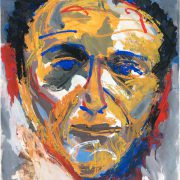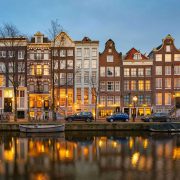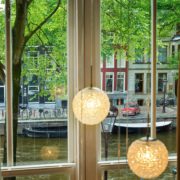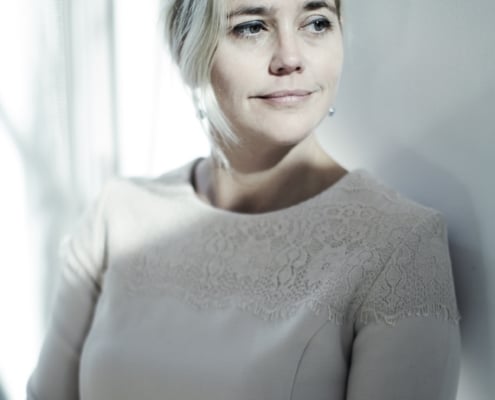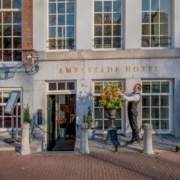Arden Photography at Samsara Books & Art
The magical Amsterdam canals by night, colourful houses of a fishing village in Italy, modern architecture in Rotterdam… As photography artist Arden likes to say: ‘’Every capture has its own unique story.’’ Throughout the month of May, Samsara Books & Art – the daughter company of the Ambassade Hotel – is hosting an exhibition of unique framed photographs by Arden Photography!
About Arden
Arden is a photography artist based in Amsterdam and specialized in aerial photos, architecture, colorful patterns and reflections. His work has been published by media such as the BBC and Euronews, and has been featured on the largest travel and photography social media accounts worldwide. With more than 240.000 people following him on Instagram, he is building an empire of his own.
Arden has been fascinated by photography for many years, but only after his trip to Namibia in 2017, he decided to buy a professional camera which enables him to capture the beauty of the world in a passionate way. ‘’I have a computer science background that helps me to look at my surroundings in an analytical way and I use small details to always have unique perspectives.’’

Arden Photography at Samsara Books & Art
During the month of May, numerous beautiful works by Arden are on display at Samsara Books & Art. At the exhibition you will find, for instance, the extraordinary photo called ‘Damrak Houses‘. Arden took this magical photo during a quiet night in Amsterdam. Because of how still the canal water was at that moment, Arden was able to capture the reflection of the houses in a perfect way. The complete picture felt like a testament to the famous words of Vincent Van Gogh, who once said: „I often think that the night is more alive and more richly coloured than the day.“

‘Ambassade Night Reflections’
The Ambassade Hotel has also been captured in a very unique way by Arden. ‚Ambassade Night Reflections‘ was taken during his stay at the Ambassade Hotel. Arden had asked the hotel to switch on the lights of all the rooms at the front of the hotel, which enabled him to take his remarkable picture. As a result of the bright lights shining from the windows and their beautiful reflections on the canal, this image became one of Arden’s most liked photos of all time on social media.
Extraordinary photo’s from all over the world
In addition to the amazing images of Amsterdam, there are also remarkable photographs that were made in other countries, all over the world. Arden took ‘Color Palette from Gdansk’ during a sunny autumn day in Gdansk, Poland. This amazing photo has been viewed and shared by millions on social media, and has been published by mass media as well.
If you’re staying at the Ambassade Hotel, be sure to stop by this month (May ’21) to admire Arden’s extraordinary works from his ‚Amsterdam‘ & ‚Colours of the world‘ series at Samsara Books & Art, or shop them online! Samsara Books & Art offers both framed and unframed prints.
Combine your visit to Samsara Books & Art with a wonderful stay at the Ambassade hotel, with for example our Art & Culture package! With this special offer package, you will discover our hotel’s art collection, and the history & highlights of Amsterdam! You can view all our special offer packages here.
Oude Spiegelstraat 7
1016 BM Amsterdam





